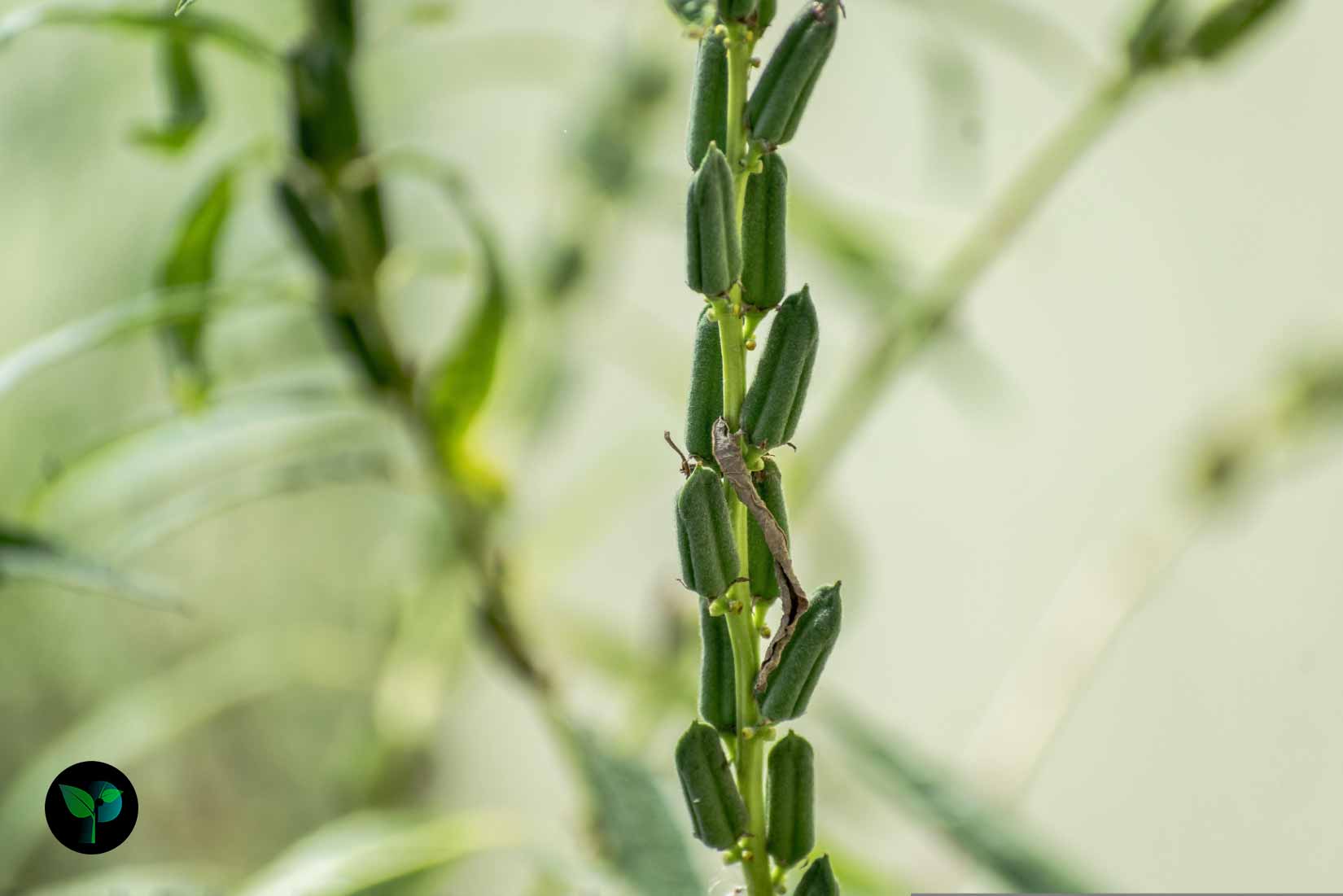If you are interested in using herbal remedies instead of chemical drugs in certain situations, knowing the properties of these plants can greatly assist in their proper use and sometimes in avoiding their misuse. Stay tuned with Plants Folder for this post to become familiar with the medicinal properties of sesame, which have been proven by researchers in the field of botany and traditional medicine.
History and Origin
Sesame, scientifically known as Sesamum indicum, is an ancient oilseed crop that has been cultivated for its culinary, medicinal, and cultural significance for over 5,000 years. In this essay, we will explore the history and origin of this plant, its wide-ranging benefits, restrictions for those who should avoid its consumption, and the diverse methods of utilizing sesame in culinary and medicinal contexts.
it is believed to have originated in Africa, particularly in regions of present-day Sudan and Ethiopia. From its origins, it is cultivation and consumption spread to various parts of the world, including Asia, the Middle East, and the Americas, where it became an integral part of local cuisines and cultural practices.
Historically, it played a prominent role in ancient civilizations. The ancient Egyptians incorporated these seeds into bread, and they also extracted oil from the seeds for cooking and lamps. In Assyrian folklore, it was considered a symbol of immortality, while in Indian culture, these seeds have been traditionally used in religious ceremonies and rituals.
Benefits of Sesame
Nutritional Composition
these seeds are rich in essential nutrients, making them a valuable addition to a balanced diet. They are an excellent source of:
Healthy Fats
these seeds are abundant in unsaturated fats, particularly oleic and linoleic acids, which are beneficial for heart health and overall well-being.
Protein
With a notable protein content, these seeds provide essential amino acids, making them a valuable plant-based protein source.
Minerals
Sesame seeds are a good source of minerals such as calcium, iron, magnesium, and phosphorus. These minerals contribute to bone health, energy metabolism, and other physiological functions.
Culinary Uses
these seeds offer a distinct nutty flavor and versatile applications in culinary preparations. They are commonly used for:
Sesame Oil
Extracted from these seeds, this oil is prized for its rich, nutty flavor and high smoke point, making it suitable for stir-frying, sautéing, and dressings.
Bakery and Confectionery
these seeds are used as toppings for bread, buns, and pastries, adding a delightful crunch and flavor. They are also a key ingredient in halva and sesame brittle.
Condiments
Tahini, a paste made from ground sesame seeds, is a staple in Middle Eastern and Mediterranean cuisines, featuring prominently in dishes like hummus and baba ghanoush.
Medicinal Properties
Sesame seeds and oil are associated with potential health-promoting properties:
Antioxidant Effects
The presence of various antioxidants in these seeds is linked to protection against oxidative stress and inflammation.
Cardiometabolic Health
Some studies suggest that its consumption may aid in lowering cholesterol levels and improving cardiovascular health.
Bone Health
The abundance of calcium in these seeds contributes to bone strength and may be beneficial in preventing osteoporosis.
Who Should Not Use Sesame
While it is generally regarded as safe for consumption, there are certain individuals who should approach its use with caution or avoid it entirely:
Allergies
Individuals with sesame allergies should refrain from consuming these seeds and products due to the potential for severe allergic reactions.
Seasonal Allergy: Using 3 Herbal Plants to Relieve its Discomfort.
Pregnancy and Lactation
Pregnant and lactating individuals are advised to monitor their sesame intake and consult healthcare providers, as excessive consumption may have implications for maternal and fetal health.
How to Use it
Culinary Applications
Sesame seeds and its oil can be integrated into a diverse array of culinary creations:
Toast and Topping
Toasted sesame seeds can be sprinkled atop salads, stir-fries, and noodle dishes, providing a delightful crunch and flavor enhancement.
Dips and Sauces
Tahini, a versatile sesame paste, can be utilized in dips, dressings, and sauces, offering a creamy and nutty profile.
Medicinal Preparations
it can also be utilized for its potential health benefits:
Oil Pulling
In some traditional medicinal practices, oil pulling with sesame oil is believed to support oral health and hygiene.
Infusions and Decoctions
Ground sesame seeds can be steeped in hot water to create an infusion, which may be used in certain traditional remedies.
Precautionary Measures
When incorporating sesame into culinary and medicinal applications, it is essential to consider the following practices:
Quality and Storage
Ensure the sesame seeds and oil are of high quality and stored in airtight containers away from light and heat to maintain their freshness.
Allergy Awareness
When preparing dishes or remedies containing sesame, it is crucial to be mindful of potential allergic reactions in individuals who may come into contact with or consume sesame-derived products.
In conclusion, this plant stands as a testament to the enduring legacy of a seed that has woven itself into the tapestry of global culinary traditions and medicinal practices. Its storied history, nutritional richness, and potential health benefits underscore its significance as an invaluable resource in the interconnected realms of food, culture, and well-being. While sesame offers a palette of culinary delights and medicinal potentials, prudence and awareness of individual health considerations should guide its incorporation into diverse culinary and wellness pursuits. Whether lightly toasted atop a salad or harnessed in traditional remedies, it serves as a testament to the harmonious interplay of nourishment, heritage, and health across cultures worldwide.



Leave a Reply